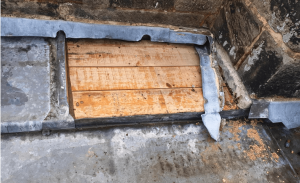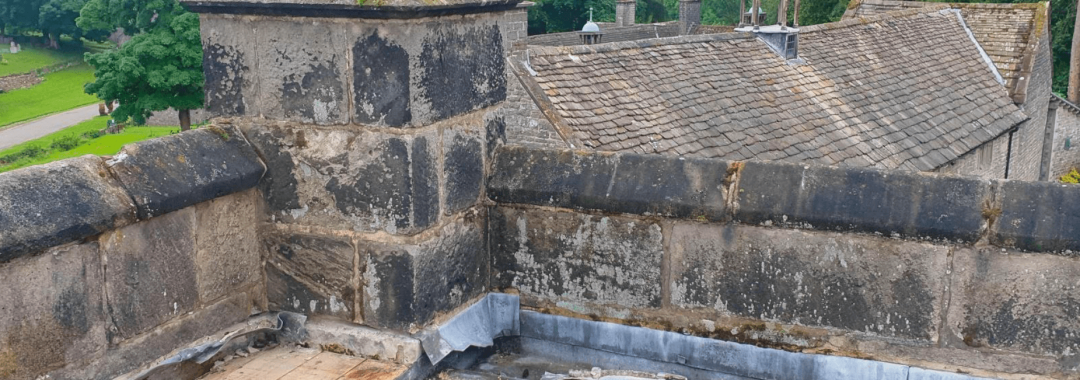Tissington Hall Honey Bees
Feral honey bees had chosen to make their home at the hall creating concerns for both guests and staff. The decision was chosen to save the bees rather than have the colony treated. Research of this specialist service led by Sir Richard Fitzherbert to Mansfield Honey Bees, in order to remove and relocate these bees from below the roof section.
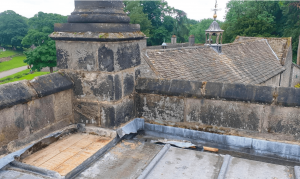
Bees at this height pose no threat or create damage to properties. However they pose a nuisance when in swarm mode at peak times of our summer period, which is also the Hall’s busy period with wedding events and tourism.
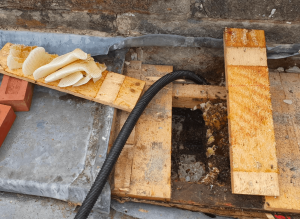
Brand new clean wax comb was found when the colony was exposed. This suggests that the bees have been busy getting ready to expand and hence swarm. Careful removal procedures enabled this delicate comb to be saved and reused by strapping the comb with bands into empty frames. These were placed into a purpose made box to be subsequently managed by a passion beekeeper.
A beekeeper’s role is to manage his hives to maintain the bees wellbeing, then treat when signs of disease occur which can be very frequent. When not managed properly, feral bees can soon be overcome with disease, mites and even wax moth, which very often bring wild colonies to their end.
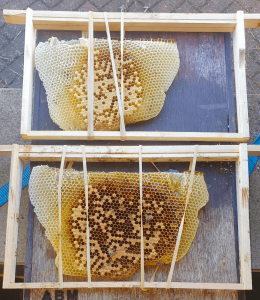
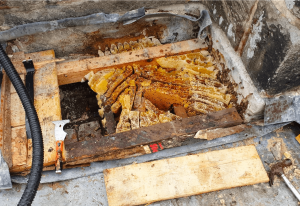
Boards were replaced once all bees, comb and honey were removed, leaving the Hall in good order ready for the lead to be replaced.
